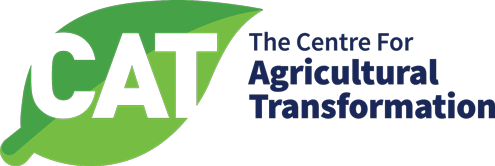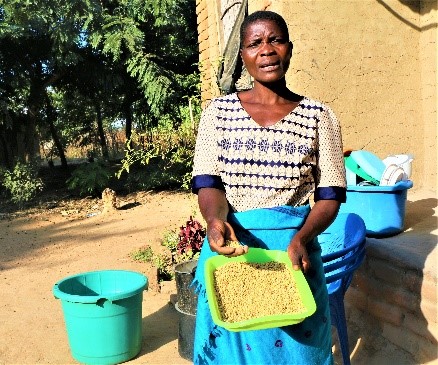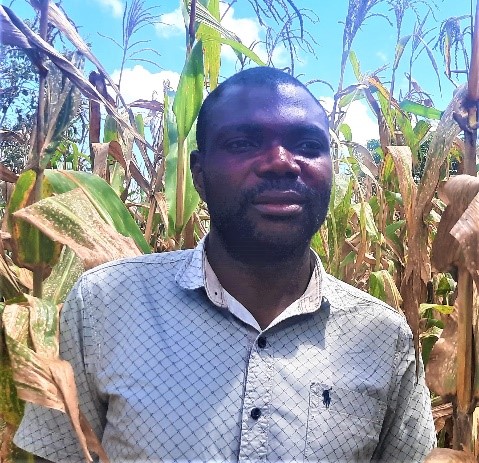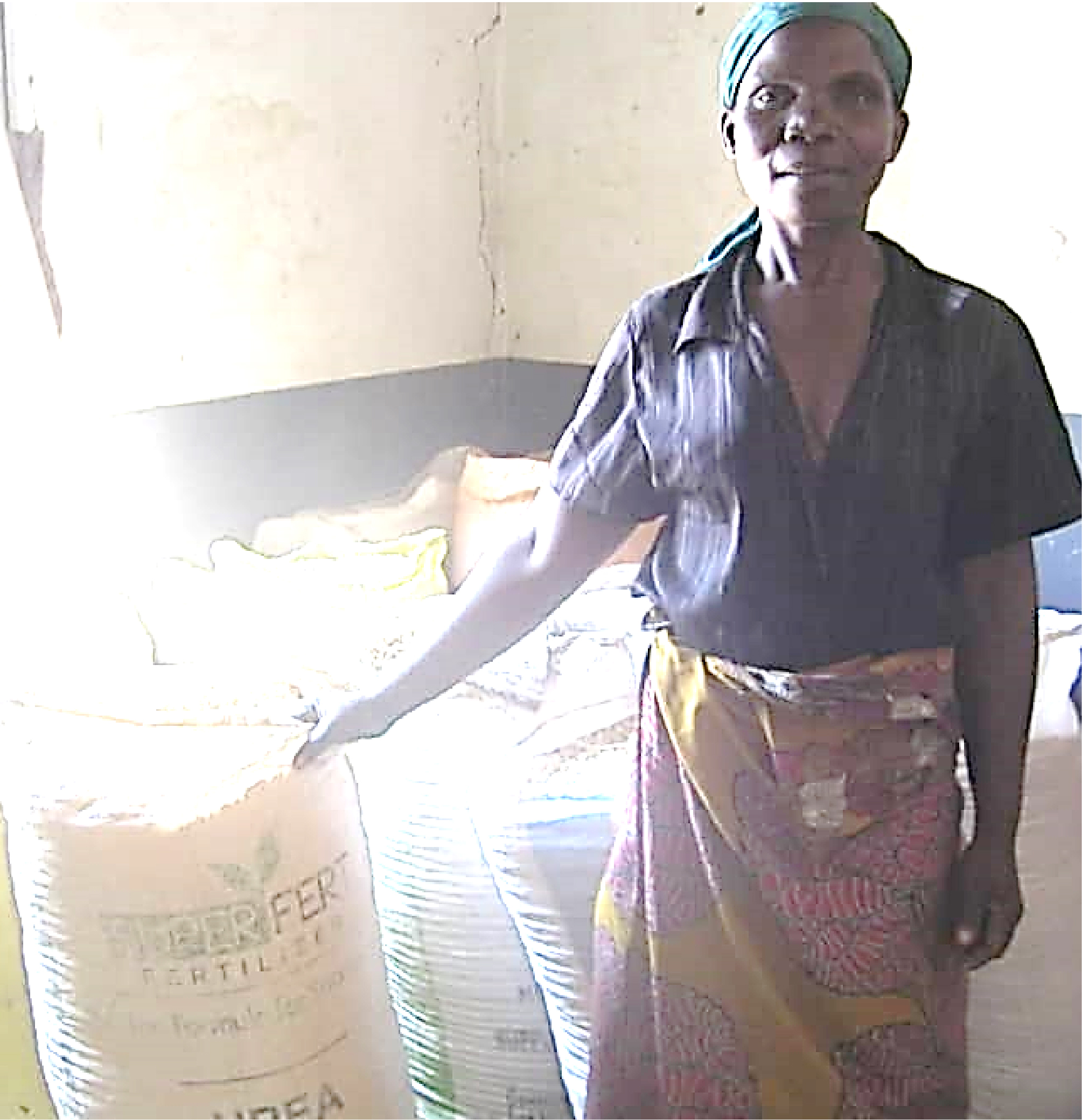
Joyce’s life transforms after enrolling into an input loan initiative
March 12, 2024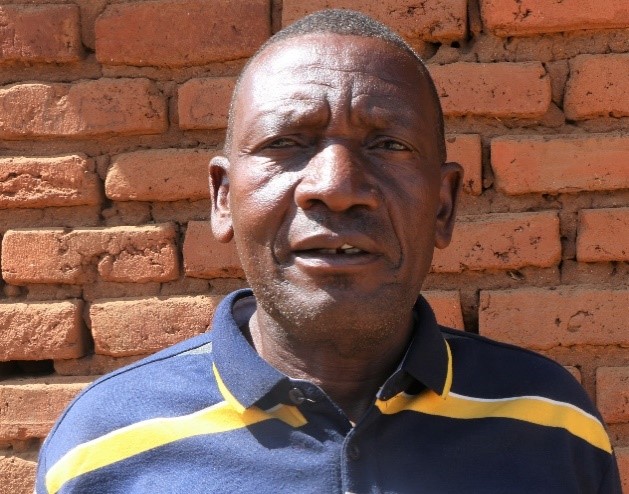
Boosting Incomes For Better Lives
March 12, 2024At Khaya village in Malawi, in the southern part of Mzimba district under Traditional Authority (T/A) Mabilabo, a smiling woman emerges from the corner of a house and extends both her hands to us for a welcoming greeting.
She is accompanied by eight uniformly dressed women. These are women who have been attending a village savings and loans scheme (VSLS) meeting where each member contributes K2,000 shares per month.
Excitedly, the woman, named Alinafe, approaches and directs our team to sit on some wooden chairs near her iron sheet roofed house. She tells us that the chairs were purchased, in part, from profit sales of her soybean production.
Alinafe is one of the farmers working with Agriculture Input Supplies Limited (AISL), an agribusiness partner supported by the Centre for Agricultural Transformation (CAT).
The CAT is funded by the Foundation for a Smoke-Free World through its affiliate the Agricultural Transformation Initiative (ATI) to promote smallholder farmers’ diversification into alternative value chains from tobacco.
For Alinafe, low-quality seeds, lack of fertilizers, and poor market prices are major challenges to her farming business. She also explains that tobacco farming requires an enormous amount of labor, and that it’s typically not very profitable for farmers.
“The problem with tobacco is that it needs a lot of labour, resources, and energy. You put in a lot, but you get less than expected. It’s tough going,” she says.
Following low yields and limited income from tobacco production, Alinafe decided to diversify into soybean production.
Her journey to increased soybean production started when she joined the nearby Chemakapenje Farmers’ Cooperative, where she received training in soybean production supported by CAT.
At the cooperative, she was later offered input loans, such as improved Tikolore soybean seeds. “Previously, most of us here were just growing maize because we didn’t have the seed and fertilizers to increase our soybean production. Thanks to CAT, now we can grow soybeans, which demand less labour, and profits are higher than tobacco,” she says, flashing a smile.
“Our major problem here is to do with markets. We sell to market vendors at very cheap prices because there is no formal market around us, otherwise we would have been earning more and be richer by now,” she states.
Before CAT’s intervention, Alinafe did not take soybean farming seriously, harvesting only one 50 kilogram (kg) bag in the 2019 to 2020 season, which she sold for K12,500.
Armed with support from CAT through AISL, in 2020 to 2021 season, she harvested 16 bags of soybeans weighing 50kgs on three acres and sold the produce to market vendors at K150 per kg, thus earning K120,000.
The following year, the yield increased to 20 bags of 50kg on the same three acres, but the market vendors bought the soybean at K250 per kg, translating into K250,000 earnings.
However, the 2022 to 2023 growing season was a difficult for Malawi, due to heavy rainfall caused by a tropical cyclone Freddy. During this season, she only managed to harvest four bags each weighing 50kgs, a common problem which affected the majority of soybean farmers in most parts of Malawi due to climate change.
Additionally, the low yields were attributed to the emergence of a soybean rust disease that devastated many soybean crop fields across the country.
To date, through profits from soybean production, Alinafe has managed to roof her two houses with iron sheets, and using the same soybean profits she is able to participate in two village savings and loans schemes.
“There are many benefits to joining a women’s group. Through the shares, I have managed to buy household furniture and kitchen utensils; all this money is from soybeans, which I contribute monthly to my two savings groups,” Alinafe says.
Alinafe attributes her success to the support she received from Chemakapenje Farmers’ Cooperative, whose agricultural extension workers offered advice on crop husbandry practices, improved seeds, and fertilizers to increase production and income.
“With soybeans, I’m now better off than before when I was growing tobacco. I was almost at zero and hopeless, but now the future looks good because of this soybean farming,” Alinafe added.
She is one of the farmers whose 2022 soybean production increased by an average of 38 percent, while revenue increased by an average of 79 percent, according to a CAT survey.
The survey results also indicate that the CAT has to date reached nearly 47,000 beneficiaries through various support mechanisms, including proven agricultural technologies and innovation as well as extension service.
The survey also found that there has been an 83 percent adoption rate of CAT-promoted technologies, which the project promotes at its smart farms through its agribusiness partners, such as AISL and others.
To show that farmers were truly diversifying into alternative value chains to tobacco, the report found that during the period of CAT implementation, there were 7,000 hectares dedicated to non-tobacco crops within the CAT’s impact areas across the country.
CAT Executive Director, Macleod Nkhoma, believes that the CAT program has laid a strong foundation for smallholder farmers’ prosperity and equipped them with the knowledge to treat farming as a business.
“The impact is there on the part of smallholder farmers that we have been supporting so far. Our interest is to see the smallholder farmer prosper by diversifying into profitable value chains, while increasing productivity and incomes so that they can better support their families. We thank the Foundation for a Smoke-Free World through its affiliate the Agricultural Transformation Initiative (ATI) for funding the CAT to be able to reach these farmers and empower them,” he says.

Alinafe (third from left) with members of Khaya Village Savings and Loans Club
